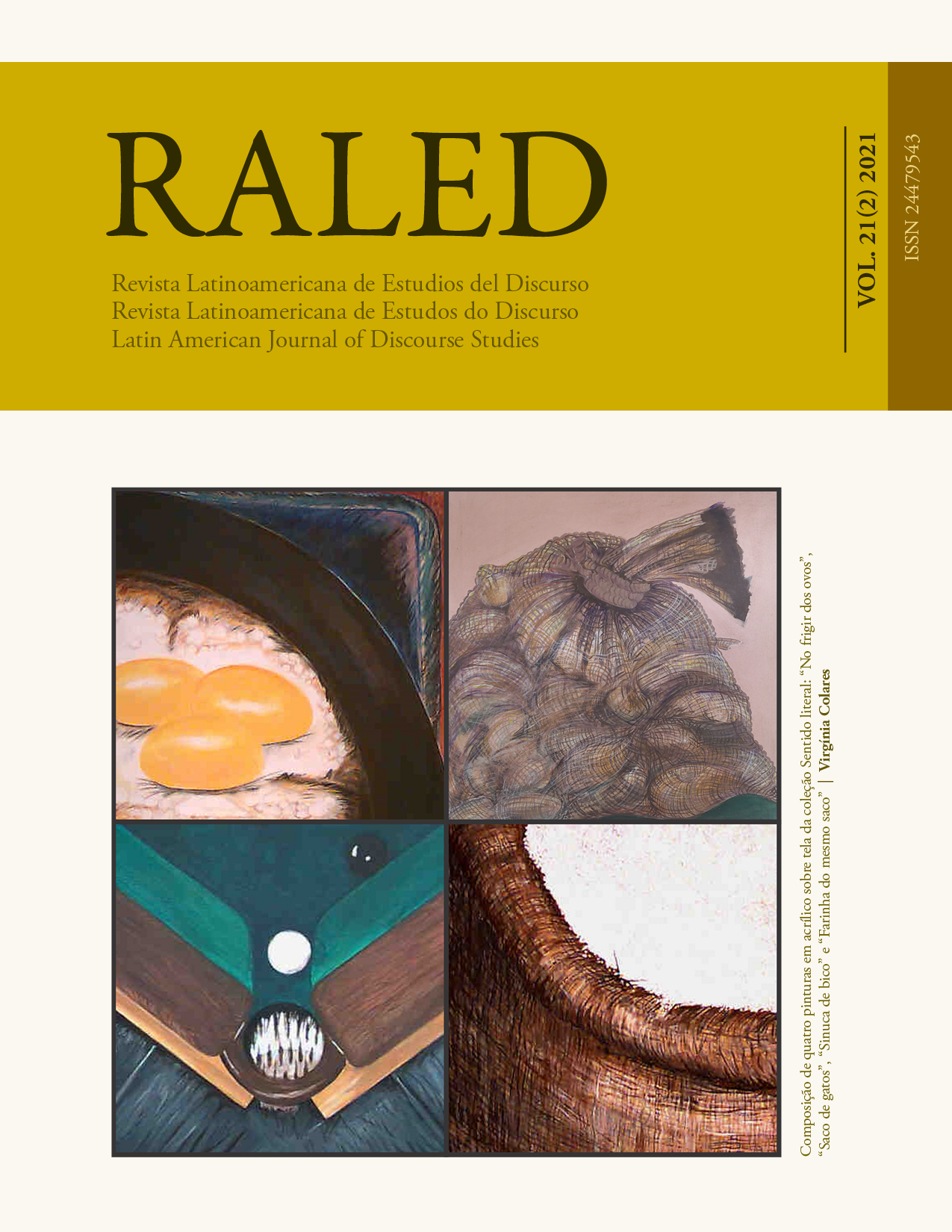Discursos da extrema-direita no Brasil: uma análise de pronunciamentos de Jair Bolsonaro
DOI:
https://doi.org/10.35956/v.21.n2.2021.p.85-100Palabras clave:
Imagem, Pragmática, Política, Descortesia, Sexismo e RetóricaResumen
Usar el lenguaje humano para silenciar a los oponentes convertidos en enemigos e incitar a sus seguidores a la violencia son dos de las principales propiedades del lenguaje fascista. En este artículo pretendemos hacer una breve presentación de ciertas similitudes y diferencias entre el populismo y el fascismo. A continuación, presentamos algunas reflexiones sobre el lenguaje fascista, basado en Victor Klemperer y Jean-Pierre Faye. Finalmente, analizamos algunos pronunciamientos y declaraciones de Jair Bolsonaro. Nuestros principales propósitos son problematizar una distinción hecha por el historiador Federico Finchelstein entre populismo y fascismo, y apoyar la idea de que varios de sus discursos producidos durante más de tres décadas de vida pública materializan huellas de un lenguaje neofascista. Para la ejecución del trabajo, emplearemos algunos postulados de Análisis del Discurso, además de ciertos principios de Retórica.
Descargas
Citas
ARISTÓTELES. (2005). Retórica. Lisboa: Imprensa Nacional/Casa da Moeda.
BARROS E SILVA, F. (2020). Dentro do pesadelo. O governo Bolsonaro e a calamidade brasileira. Revista Piauí, São Paulo, edição 164, p. 26-31.
BARTHES, R. (2000). Aula. São Paulo: Cultrix.
CICERO. (2002). De l’orateur. Paris: Les Belles Lettres.
FAYE, J-P. (2009). Introdução às linguagens totalitárias. São Paulo: Perspectiva.
FINCHELSTEIN, F. (2019). Do fascismo ao populismo na história. São Paulo: Almedina.
GÓRGIAS. (2005) Elogio de Helena. In: O efeito sofístico (p. 293-301). São Paulo: Editora 34.
KLEMPERER, V. (2009). LTI. A linguagem do Terceiro Reich. Rio de Janeiro: Contraponto.
MOURA, M. e CORBELLINI, J. (2019). Eleição disruptiva: por que Bolsonaro venceu. Rio de Janeiro: Record.
PERELMAN, C; OLBRECHTS-TYTECA, L. (2005). Tratado da argumentação. São Paulo: Martins Fontes.
PIOVEZANI, C. e GENTILE, E. (2020). A linguagem fascista. São Paulo: Editora.
SAINT-CLAIR, C. (2018). O homem que peitou o exército e desafia a democracia. Rio de Janeiro: Máquina de Livros.
Descargas
Publicado
Cómo citar
Número
Sección
Licencia
Derechos de autor 2021 Carlos Piovezani

Esta obra está bajo una licencia internacional Creative Commons Atribución-NoComercial-SinDerivadas 4.0.
Los/as autores/as conservan los derechos de autor/a y garantizan a RALED el derecho de ser la primera publicación del trabajo al igual que licenciado bajo una Creative Commons Attribution License BY-NC-ND 4.0 que permite a otros compartir el trabajo con un reconocimiento de la autoría del trabajo, copiar y redistribuir el material en cualquier medio o formato.
Os/As autores/as conservam os direitos autorais e garantem a RALED o direito de ser a primeira publicação do trabalho licenciado por uma Creative Commons Attribution License BY-NC-ND 4.0 que permite compartilhar o trabalho com reconhecimento de sua autoria e cópia e redistribuição do material em qualquer meio ou formato.




